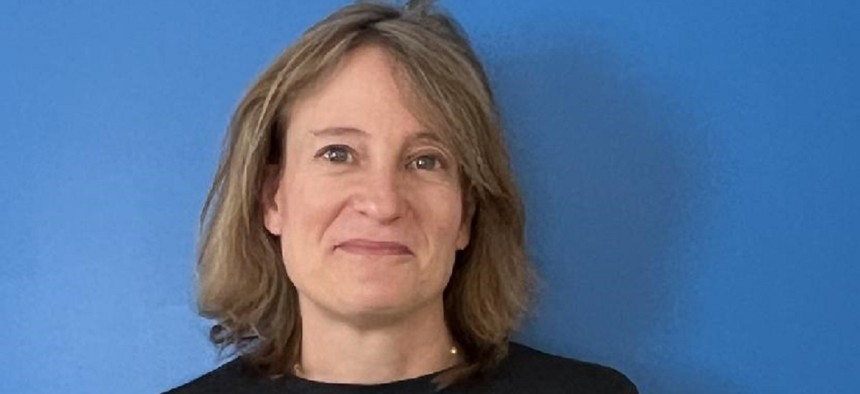Opinion
Opinion: Asylum-seeker children need a route to lawful immigration status
Legal, social service and advocacy organizations can start by educating the courts about Special Immigrant Juvenile Status.

Liberty Aldrich is the executive director of The Children’s Law Center. Image courtesy of Liberty Aldrich
With the influx of migrants coming into New York state – thousands of whom are children escaping violence and poverty – pathways to legal status, which bring safety and stability, are needed more than ever. As a Family Court Judge serving in Bronx County, I routinely oversaw cases involving these young migrants and was able to help them find a path to safety by successfully awarding them Special Immigrant Juvenile Status.
Congress created this designation to provide an avenue to obtain lawful immigration status for undocumented children in foster care or guardianship situations, where one or both of a child’s parents are unable to provide for that child’s care or protection. For the many children and young people in our city who face desperate situations that prevent them from returning to their homelands, obtaining guardianship and this special status order from the Family Court is the crucial and necessary first step towards achieving lawful immigration status from the U.S. Citizenship and Immigration Service.
Despite this potential path to legal status, our overburdened immigration system leaves too many migrant children without awareness of this status petition option. Even more disturbing, some children are represented by private counsel seeking legal status for their young clients on behalf of “sponsors” who profit from the labor exploitation of these children. To mitigate the daily harm experienced by migrant children, we must increase awareness among legal, social service, and advocacy organizations who work with migrants about the special status path to legal status and support independent and skilled attorneys for children in Family Court.
Organizations like the Children’s Law Center in New York City are pioneering comprehensive approaches to representing children in special status cases in Family Court that illustrate just how transformational the special status pathway to legal status can be for this vulnerable population. During an initial interview, an interdisciplinary team of attorneys and social workers gathers the information needed to file a motion for special status and assesses the needs a migrant child client has outside of the courtroom. In one of these cases from the past year, attorneys and social workers represented Evan, a boy from El Salvador who braved treacherous conditions to travel to the U.S. after being thrown out of his home by his mother’s boyfriend and enduring threats from local gangs. After being taken into custody in Texas, he was released to his uncle in New York. The Children’s Law Center worked with Evan on his petition, linked him to services, and successfully allowed him to achieve status in the U.S. and stay with his uncle safely and legally.
This approach means that while special status petitions are being pursued, children like Evan are able to enroll in school, English-as-a-second-language courses, high school equivalency programs and mental health services. It also means assessing whether a client is a victim of human trafficking and, if so, helping them move out of that dangerous and abusive environment.
Much of the current conversation about addressing the migrant crisis has focused on what is not working. But the special status pathway to legal status provides a bright spot to support the most vulnerable among us. By building awareness of this option among those on the frontlines working with migrants, we can provide basic services for migrant children, many of whom have endured harsh conditions and traumatic events, and reduce the exploitation of young migrants through child labor. To do so, we must educate social service, legal, and advocacy groups that work directly with migrant children about how a special status petition works and then link more of these children to attorneys capable of filing for this status.
With legal status and a stable home life, we can reduce involvement by homeland security and child protection officials while also reducing the chances that children are exposed to dangerous and illegal situations.
More awareness about this path to legal status, along with investment into comprehensive approaches to migrant child representation will help protect this vulnerable population living in our state.
Liberty Aldrich is the executive director of The Children’s Law Center and a former Judge serving in the Bronx Family Court.
NEXT STORY: Opinion: Make gender equality count in 2024
